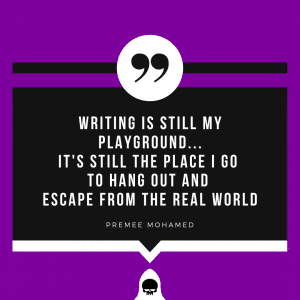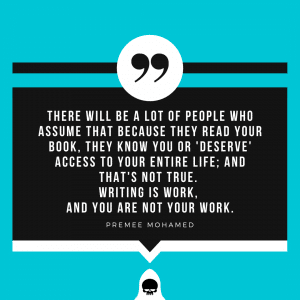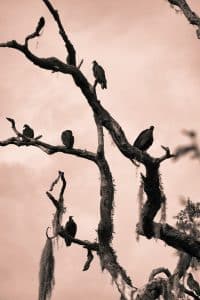Greetings and salutations, Apparition Lit Readers and Submitters!
For this blog, I’m very pleased to kick off a new series that will feature Q&A interviews with our venerable guest editors. These editors are vital to bringing vision and clarity to our issues and I am taking this opportunity to showcase how they are truly badass.
First up, we have our latest guest editor, the incredibly prolific and daringly creative Premee Mohamed. Read on to learn more about what she thought of our latest issue, what she’s up to these days, and what kind of wasteland character she envisions becoming in the inevitable apocalypse…
Q) What was your experience like working with Apparition Lit? What pieces in our TOC are you most excited about and why? What would you want our readers to know about how we choose our TOC?
A) It was fantastic, I learned so much. This was my first guest editing stint so I was pretty nervous going in, but everyone was so relaxed and fun and excited about the issue. (It also helps that I’ve worked with the team before, having stories published in Apparition Lit!) I appreciated that Amy and the other editors put so much work into making sure I felt comfortable, knew I could ask questions any time, and that we all wanted to be on the same page. It was also really interesting to see the ‘inner workings’– not just how stories were slushed/bumped but also how files were sorted and organized in the spreadsheets to make it as guest-editor friendly as possible. I’m excited about all the pieces in our TOC but I confess a certain weakness for ‘Bride, Knife, Flaming Horse’ by ML Krishnan; I’m well-versed in the wording of those ‘matrimonial ads’ and we’ve had quite a few arranged marriages in my family, so I understand where the parents are coming from and what they’re being anxious nags about. I loved the imagery and the graceful way we get to know the two suitors. It’s just such a vivid, fun story. I would like our readers to know how collaborative the process is of choosing the final TOC! Nobody gets an absolute veto and nobody’s pick is weighted more heavily than anyone else’s. We talked in great detail about all the final stories, weighed strengths and weaknesses, discussed the edits we thought would make the story stronger, and we all agreed on the final stories together. There’s absolutely an overall vision for Apparition Lit as a whole, and we wanted the stories to feel true to that vision, as well as true to themselves!

Q) I know you mentioned in our introductory meeting that you slush read and edit for other publications and entities. As a writer, how does your own experience of knowing what it is like to submit works to competitive magazines and have your works reviewed/edited shape how you read/edit for others?
A) Yes, I am an ‘Associate Editor’ (slusher) for Escape Pod! It’s definitely been educational seeing the ‘other side’ of short fiction, as I had been submitting for a couple of years before I started slushing for them. It sometimes felt dispiriting to see venues on the Submission Grinder with sub-1% acceptance rates. But when I started slushing, I realized how many stories contribute to that number simply by not following the submission guidelines. I had no idea it would be so many. Too long, wrong genre, lied about being a reprint, plagiarized, that kind of thing. I felt much better submitting stories knowing that simply by following the guidelines I had probably gotten at least into the top 50%. It also really drove home the idea that a rejection is not personal and it is not a comment on the quality of the story itself, because I’ve now read so many submitted stories that are very, very good but just don’t make it to that top tier. The difference between a yes and a no is often a razor-edge, and the factors making it a yes are often out of the writer’s hands. It might be related to budget, or the subject or voice being too similar to a previous story, or just some nebulous quality of ‘fit.’ A no doesn’t mean I’ve submitted a bad story; it just means ‘not this story right now.’
Q) You are quite prolific and have many successful published works, including novels and novellas published in quick succession to much acclaim – namely I’m thinking of your novel ‘A Broken Darkness’ and novellas ‘These Lifeless Things’, ‘What Can We Offer You Tonight’, and ‘The Annual Migration of Clouds’ all debuting in the early months of 2021. Your bibliography shows a lot of dedication and commitment for an author in any genre, much less one that is as competitive and nebulous as speculative fiction. How do you find the motivation and commitment to keep producing while making time for other opportunities such as guest editing for Apparition?
A) Thank you for the kind words! The short answer is “I am very tired,” but the long answer is that I love to write, and so when I decided to embark on a publishing career so I could get paid to do this thing I love, I knew I’d have to figure out how to organize my job, writing time, publishing time, and time to try to contribute to the writing community that’s helped me so much. It was definitely easier to manage a couple of years ago when I was focused on short fiction and was still ‘writing for fun.’ I think the key now is to still find the fun in the writing that I owe people, even on deadline, even under contract. Writing is still my playground, it’s still the place I go to hang out and escape from the real world. So I do try to block off time in my life to do it, and not let anything dig into that time (slightly easier because I live alone and am currently working from home). I also block off time separately for publishing-related work. To stay organized, I rely really heavily on Google Calendar (and its reminder feature!), a visual timer, and a paper planner. When I have the time to write, the motivation to publish comes both from completing the writing itself, and from getting paid on time, and I think that’s a beautiful cycle. 😀
Q) I have just started reading ‘Beneath the Rising’, with plans of course to get to ‘A Broken Darkness.’ Within the first few pages I was very interested to see an alternate post-9/11 world with hints at other major political/social elements that are full of implications for our current timeline. I’ve found myself too intimidated to take on alternate history, especially given the current state of international political turmoil. How did you decide where to start world-building for this story (and it’s sequel)? How did you find a believable balance of modern technologies and your unique flavor of eldritch horror? Bonus points if your answer includes as few spoilers as possible, just for my sake…
A) ‘Beneath the Rising’ was started during my first degree, and finished the year I graduated (summer of 2002), so 9/11 was very current and often on my mind, like a lot of people, I think! I actually wrote the book out of order, so the scene that starts the book (where a brown boy, Nick, is picking up a white friend from the airport) was written later. If 9/11 hadn’t happened I don’t know that most of the book would have looked the way it did, because it highlighted aspects of Nick’s identity that he normally took for granted. There’s a low-level background level of racism and discrimination where I (and he) live, but suddenly it became much more prominent, vocal, dangerous, and politicized. (And without too many spoilers, the alternate history is explained somewhat in the sequel when Nick asks a question he really should have asked in the first book!) I don’t know if I did find a believable balance of technology and horror, but when I started writing it as a science undergrad, I did like the idea of the scientist character trying to use her genius and money to try to ‘save the world,’ so I enjoyed making up technologies (like her sustainable styrofoam substitute, bamfoam, and the cheap solar panels) that someone would use if that was the goal. The dichotomy between someone trying to save the world and a group of evil beings trying to destroy the world seemed like an interesting place to start. Science versus magic, one trying to create and one trying to ruin, struck me as a cool central conflict, because as the book goes on you start to realize that the word you’re looking for isn’t exactly ‘versus.’
Q) As a queer Chicana writer (and all around spec-fic nerd), I find the worst struggle with erasure is the microaggressions, or “the death of a thousand papercuts.” It’s the mispronunciation of my name’ the google-translate versions of my culture I see in published works; and the invisibility that comes with being femme. I couldn’t help but notice your website bio is full of the insinuation -and also outright demonstration- that you are also quite familiar with backhanded compliments, stereotypes and erasure. How have you found it is best to address microaggressions and set professional boundaries around your identity? How do you suggest to writers balance their career with discourse about how they want to be perceived and portrayed?

A) This is definitely a timely question, with some PoC authors having the courage to speak up recently against very successful but also appropriative or downright racist and antisemitic authors. We sometimes hear people tell us ‘Stop making everything about race.’ Well, I’d love to; but unfortunately, when I’m surrounded by discrimination, I’m forced to bring it up more often than I’d like. I try to be polite and to give people the benefit of the doubt–assuming that they’re being ignorant rather than actively evil–until I spot a pattern of behaviour even after they’ve been asked to correct it. I try to set boundaries by pointing out to people when they’ve overstepped, but not getting too angry or public about it. A lot of the bad faith actors want attention, and I would rather not give it to them. In terms of how to balance the career with the public persona, I might suggest that early-career writers decide early on what belongs to you, and what belongs to readers. It’s better if you decide, rather than letting readers decide for you and then struggling later on to reclaim your privacy and boundaries. There will be a lot of people who assume that because they read your book, they know you or ‘deserve’ access to your entire life; and that’s not true. Writing is work, and you are not your work. But if people are out there attacking your culture, heritage, family, or identity, it’s important to let people know that they need to stop, and to find support if you can. It’s a big community, and we have to have each other’s backs.
Q) This question is last, but is most important: given that we have all now survived a global pandemic, have you discovered what type of post-apocalyptic wasteland character you are? I found out I was the “likable liability:” my team will keep me along for the ride because they don’t have the heart to leave me behind, but I’m not really bringing much to the fight besides constant fear-driven vigilance and my willingness to find alternatives to conventional toilet paper…
A) I am absolutely the unpredictable and somewhat deranged archivist, wandering the nuclear wastelands with my scratched goggles, burlap wrapped around my face to filter the dust, and a bad habit of biting when people get too close. I also bring nothing to the fight, and am happy enough to stagger from city to city in the middle of the night bent under the weight of my sackful of individual sheets of paper that I’ve found in the bombed-out ruins, which I intend, one day, to bind into a book, which I will call The Story Of What Happened Before. If I have a team it will be other book-obsessed weirdos also hunting for bits of paper with writing on them, and we will meet once a year for NukeCon, the only post-apocalyptic writing convention.
Q) Finally, where can our readers find you on the internet? That is, where do you want to be found? Anything else you would like to plug?
A) I can be found on my website, www.premeemohamed.com, and on Twitter at @premeesaurus! My website also has a list of upcoming panels and events I’m participating in, and a list of my published books with buy links. I would also love to plug a couple of current Kickstarters that I have contributions in: the Life Beyond Us anthology, a book of astrobiology stories edited by Julie Novakova working with the European Astrobiology Institute, and The Deadlands, a monthly magazine focused on death and the afterlife, edited by the wonderful E.Catherine Tobler, formerly of Shimmer.
There you have it folks! Until next time!
Blog cover photo by Andy Holmes on Unsplash
-
 Marie Baca Villa Blogger/Submission Reader
Marie Baca Villa Blogger/Submission ReaderMarie Baca Villa is a Chicana writer and artist in California. She has a master’s degree in psychology and used her education to build a long career in crime victim advocacy. As a fan of speculative fiction, she loves anything involving strange worlds, complex characters, and unexplained phenomenon. She’s a bonified cat lady, covered in tattoos, and she loves cussing, beer, and flaming hot cheetos. You can find Marie on Twitter @okay_its_marie





